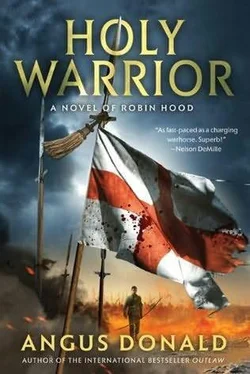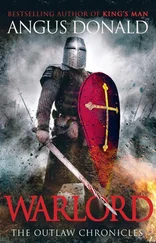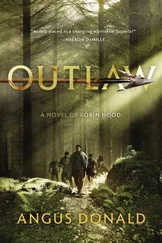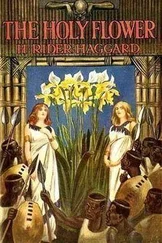Angus Donald - Holy warrior
Здесь есть возможность читать онлайн «Angus Donald - Holy warrior» весь текст электронной книги совершенно бесплатно (целиком полную версию без сокращений). В некоторых случаях можно слушать аудио, скачать через торрент в формате fb2 и присутствует краткое содержание. Жанр: Исторические приключения, на английском языке. Описание произведения, (предисловие) а так же отзывы посетителей доступны на портале библиотеки ЛибКат.
- Название:Holy warrior
- Автор:
- Жанр:
- Год:неизвестен
- ISBN:нет данных
- Рейтинг книги:3 / 5. Голосов: 1
-
Избранное:Добавить в избранное
- Отзывы:
-
Ваша оценка:
- 60
- 1
- 2
- 3
- 4
- 5
Holy warrior: краткое содержание, описание и аннотация
Предлагаем к чтению аннотацию, описание, краткое содержание или предисловие (зависит от того, что написал сам автор книги «Holy warrior»). Если вы не нашли необходимую информацию о книге — напишите в комментариях, мы постараемся отыскать её.
Holy warrior — читать онлайн бесплатно полную книгу (весь текст) целиком
Ниже представлен текст книги, разбитый по страницам. Система сохранения места последней прочитанной страницы, позволяет с удобством читать онлайн бесплатно книгу «Holy warrior», без необходимости каждый раз заново искать на чём Вы остановились. Поставьте закладку, и сможете в любой момент перейти на страницу, на которой закончили чтение.
Интервал:
Закладка:
Ghost, my grey gelding, was exhausted and I, too, was weary beyond belief. We had travelled many hundreds of miles together in the past few weeks — to London, Winchester, Nottingham and back — and, as we rode up the steep slope from the valley of the Locksley River in the county of Yorkshire towards the castle high on the hill, I patted his marbled grey neck and murmured a few words of encouragement. ‘Nearly home, boy, nearly home, and there’s a dish of hot oat mash waiting for you.’ Ghost pricked up his ears at my words, and even seemed to increase his pace a fraction. As we plodded up the endless grassy hill, scattering ewes and their gawky lambs out of our path, I could make out the square shape of the church of St Nicholas above me and behind it, on the skyline, the high wooden tower and stoutly palisaded courtyard of Kirkton Castle, the fortress of my master, which overlooks the Vale of Locksley. I wallowed in a great sense of homecoming and the warm glow of a task well done. My head was full of good, fresh intelligence; important, dangerous news, and in my saddlebags, wrapped and well-hidden, was a costly gift. I felt like a hunter, returning after a day in the wild with a fine catch: a satisfying blend of fatigue and joy.
It was early spring, in the year of Our Lord 1190, and, it seemed to me on that beautiful day, all was right in the world: noble King Richard, that most Christian warrior, was on the throne of England, the officials he had placed in positions of power were said to be governing wisely, and he himself would soon be setting off on a great and holy adventure to recover Jerusalem, the navel of the world, from the grip of the Saracen hordes, perhaps bringing about the Second Coming of Our Lord Jesus Christ by his actions. All England prayed that he might be successful. Best of all, I had successfully completed one of my first assignments for my master, Robert Odo, the newly created Earl of Locksley, and lord of Kirkton, Sheffield, Ecclesfield, Hallam, Grimesthorpe and Greasbrough, and dozens of smaller manors across Yorkshire, Nottinghamshire and Derbyshire.
I was Robin’s trouvere, or personal musician to his court. Trouveres were so called because we ‘found’ or composed songs ourselves, not merely repeating other men’s verses like a lowly jongleur. But, for Robin, I also acted as his messenger, envoy and, occasionally, spy. And I was glad to do it. I owed everything I had to him. I was a gutter-born peasant with no family, or even a village or town to call my own, and very young then, only fifteen years old — and Robin had granted me the lordship of the small manor of Westbury. I was Alan of Westbury! I was the lord of a manor; this same manor, where, more than forty years later, I now write these words. After the savage battle at Linden Lea the previous year, in which we had defeated the forces of Sir Ralph Murdac, the corrupt High Sheriff of Nottinghamshire, Robin, a notorious fugitive from the law, had been pardoned by King Richard, married his lovely Marie-Anne and been made Earl of Locksley. All those who had followed him during the dark years of his outlawry had received a reward for their loyalty — a handful of silver, a sturdy ox, or a fine horse — and, in truth, I had expected a gift of some sort too, but I had not expected to be granted a sizeable piece of land.
I was almost speechless with gratitude when Robin showed me the charter, adorned with the great, heavy red disk of his seal, that made me the custodian of this big old hall and its many outbuildings, five hundred acres of prime farmland, a village of twenty four cottages occupied by a hundred souls, mostly villeins but with a handful of free men, a water mill, a warren, two pair of oxen, a plough and a fine stone church.
‘It’s a small manor, Alan, not much more than a big farmstead, really; only half a knight’s fee. And it’s a bit run down, I’m afraid, but it is good land, I’m told,’ Robin said.
‘But how will I manage the place?’ I asked. ‘I know nothing of making a living from tilling the earth.’
‘I don’t expect you to be a farm worker, Alan,’ said Robin, laughing. ‘You must find a good man, a steward or bailiff, to do that for you. All you do is receive the rents, and make sure that nobody cheats you. I require you to serve me. But you need an income and some standing in society if you are to represent me, deliver my messages and what-have-you.’ He smiled, his strange silver eyes flashing at me: ‘And I am convinced that England has a great and pressing need for more songs about the bold exploits of handsome Robin Hood and his merry men.’
He was teasing me, of course. I had composed a few ditties about our days together beyond the law and they had spread like wildfire across the country, being sung in ale-houses from Cockermouth to Canterbury — growing farther from the truth with each drunken rendition. Robin did not mind that he was being turned into a legend, he said it amused him — in fact, I believe he relished it. And he was not in the slightest worried about his past crimes being brought to light. He was a great magnate now, untouchable by any mere Sheriff and, to boot, he enjoyed the favour and friendship of King Richard. He had won all this in two days of terrible slaughter last year, but there had been a price — above that paid for in the blood of his loyal men. In order to win that battle, Robin had made an unbreakable pact with the Poor Fellow-Soldiers of Christ and of the Temple of Solomon, the famous Templar Knights: in exchange for their support at a crucial moment in the battle, Robin had sworn that he would lead a force of mercenaries, archers and cavalry, to the Holy Land, as part of King Richard’s pilgrim army. As Robin’s trouvere, I would be accompanying the Christian force, and I could not wait to set off on what then seemed to me to be the most noble adventure that it was possible to conceive.
I had a message to Robin from King Richard in my saddlebag and I believed that it contained the date for our departure — it was only by using a great deal of force upon my self that I had refrained from tearing open the sealed parchment and reading this private missive between the King and my lord. But refrain, I did. I wanted more than anything to be his faithful, reliable vassal, utterly trustworthy, utterly loyal: for Robin had done so much more for me than grant me land. In a sense, he had made me what I was. When we first met I had been just a grubby young thief from Nottingham, and he had saved me from mutilation and possibly death at the hands of the law. Then, believing that I had some talent, he had arranged for me to be educated in music, in the Norman-French language, in Latin — the tongue of monks and scholars — and in the art of combat, and I was now as accomplished with a sword and dagger as I was with the vielle, the five-stringed polished apple-wood instrument with which I accompanied my singing.
And so I had spent many hard days and nights in the saddle wearing down the muddy roads of England in the service of my master — and now, labouring up that endless emerald slope, it felt as if I were coming home.
I glanced over to my left, as Ghost put one weary hoof in front of another up that steep hill, to check the height of the sun — it was mid-afternoon — and noticed to my complete surprise a mass of horsemen not two hundred yards away. At a rough count they numbered about a hundred men, ordered in two lines, helmeted, green-cloaked and clad in mail, all armed with twelve-foot spears, held vertically, and tipped with steel that glinted evilly in the sunlight. My first reaction was fear: they were approaching at a trot and on my exhausted mount there was no way I could outrun them. I must have been daydreaming to let them come up on me without my seeing them. As they approached, the leader, a bareheaded man who was a horse’s length ahead of the front line, ripped a long sword from his scabbard and, shouting something over his shoulder, he pointed it straight at me in an obvious order to attack. All along the first line of cavalry, the spears were levelled, the ash-wood shafts coming down from their upright position in a white wave of wood and sparkling metal, the butts couched beneath the riders’ armpits, the spearheads pointed at directly me. And then they charged.
Читать дальшеИнтервал:
Закладка:
Похожие книги на «Holy warrior»
Представляем Вашему вниманию похожие книги на «Holy warrior» списком для выбора. Мы отобрали схожую по названию и смыслу литературу в надежде предоставить читателям больше вариантов отыскать новые, интересные, ещё непрочитанные произведения.
Обсуждение, отзывы о книге «Holy warrior» и просто собственные мнения читателей. Оставьте ваши комментарии, напишите, что Вы думаете о произведении, его смысле или главных героях. Укажите что конкретно понравилось, а что нет, и почему Вы так считаете.












